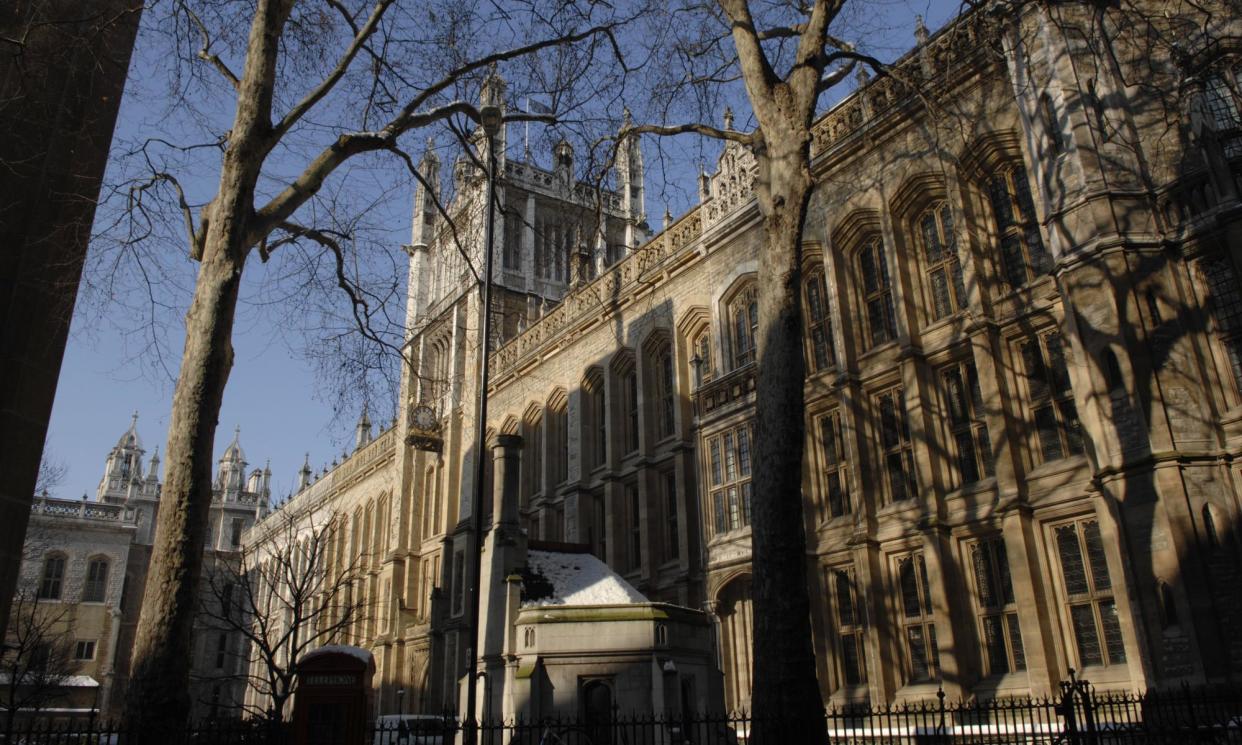UK universities valued more than institutions like parliament and BBC, finds survey

The British public values the UK’s universities more highly than the legal system or the BBC, according to a survey of attitudes towards higher education by King’s College London.
Prof Bobby Duffy, the director of King’s College London’s policy institute, said universities came behind only the NHS, the armed forces and the royal family in a league table of UK institutions considered to be among the best in the world by the public.
The representative survey of 2,600 people, conducted in May, found nearly a third put universities ahead of the civil service, newspapers or parliament among key institutions, with similar backing from Labour and Conservative supporters.
Related: UK universities face ‘irreversible decline’, global league table suggests
“Everyone thinks their own sector gets the worst press, and many working in universities will certainly feel they’ve faced tough times recently – but the public don’t seem to be paying much attention. If anything, their views are much more positive than we might expect,” Duffy said.
However, it found a significant shift in attitudes towards who should pay for higher education. A poll in 1988 found that 68% said universities should be mainly state-funded, but this year’s survey found that had shrunk to just 19%.
Higher education has been under pressure from the government, with Rishi Sunak pushing crackdowns on “rip-off” degrees. The Conservative election manifesto includes a commitment to closing “low-quality” courses and redirecting school leavers towards apprenticeships.
Many universities are also facing financial difficulties, as domestic tuition fees have been frozen since 2016 and the government’s restrictions on international student visas have hit their major sources of revenue.
If several universities had to close, the survey found that 61% of respondents would blame the government, while 29% would blame university leaders.
But the KCL survey found that voters placed higher education very low in terms of political priorities. Just 13% said higher education was “very important” in deciding how they would vote, far below the 65% who named the NHS as a major factor.
There was strong support for research, with 74% agreeing that “the research happening at universities is essential for medical, technological and social innovations”. Only 18% said “most research carried out by university staff is a waste of time”.
Nick Hillman, director of the Higher Education Policy Institute (Hepi), said: “People do have a residual understanding of how important universities are to our lives, pushing forward the frontiers of knowledge, tackling diseases and educating the workers and artists of tomorrow. It is no exaggeration to say that, in many respects, they are part of what makes life worth living, even if we sometimes take them for granted.”
Hepi’s research has found some parliamentary constituencies gain more than £500m in economic benefits from the presence of international students, including Sheffield Central and Leeds Central and Headingly.
The Labour leader Keir Starmer’s central London seat, Holborn & St Pancras, gains about £438m in activity, putting it in the top 10. But Sunak’s North Yorkshire seat of Richmond and Northallerton is one of the lowest nationally, gaining just £8m a year.


